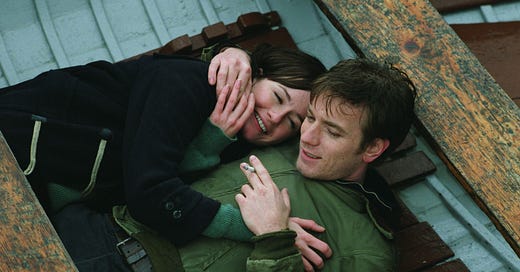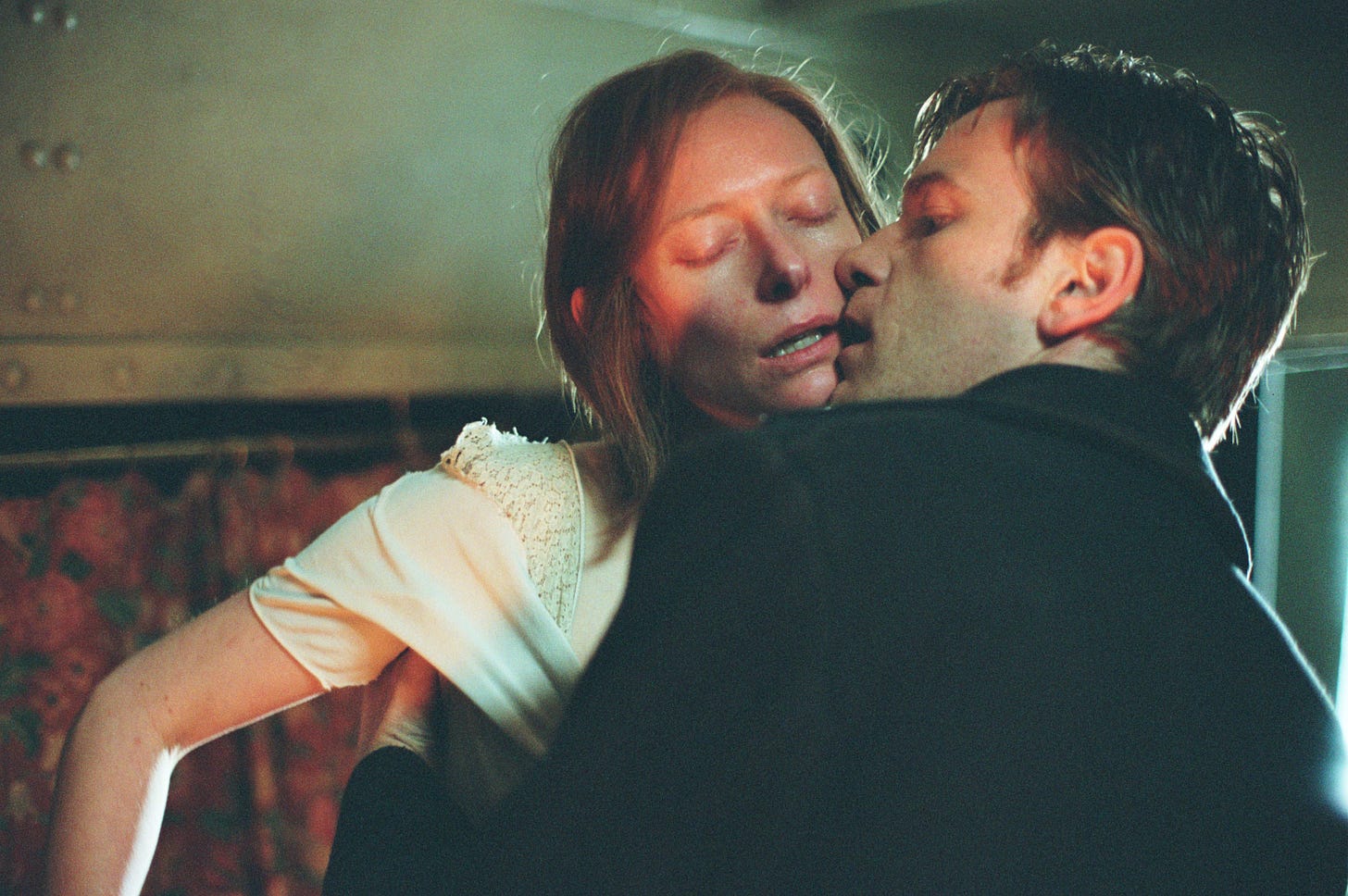Spoilers for Young Adam (2003). Trigger warnings for discussions of sexual assault.
Writer/director David Mackenzie has spent his career telling morally ambiguous, often brutal dramas. He’s best known for Starred Up (2013) and Hell and High Water (2016), both of which were well-received by critics and audiences.
In 2003, in his native Scotland, he wrote and directed an adaption of Alexander Trocchi’s 1954 novel, Young Adam. It follows Joe Taylor (Ewan McGregor), a drifter working on a barge run by Les and Ella Gault (Peter Mullan and Tilda Swinton). When Joe and Les discover the body of a young woman in the canal, the story shifts to reveal that Joe knows more about the victim than he first let on.
Mackenzie’s second feature had many of the hallmarks that he would make his name with: a grey morality, sudden bursts of uncomfortable violence, and dark motivations. However, the work lacks the critical view of the characters that would define his later work.
There are several reasons for this. The brief runtime, combined with a complex back and forth between the past and present means that all the characters feel half-formed, especially the victim Cathie (Emily Mortimer). Even Joe, who is in nearly every scene, feels underdeveloped. McGregor is an excellent actor but has too much boyish charm to really pull off the quasi-sociopathic character.
Perhaps a voiceover would have helped us dive into his mentality, like Travis Bickle in Taxi Driver, but instead, we’re left to judge his actions at face value. The novel has the advantage of talking to the reader from the character’s perspective – in the film, we are kept at a distance, which blocks any critical discussion of his motivations.
By the time we get to the end of this dour film, we discover that Cathie was not murdered as such. After a final tryst with Joe, she tells him she is pregnant, and he rejects her. Chasing him, she falls into the canal and drowns. We have also seen Joe humiliate, beat, and rape Cathie, and in the months following, start an affair with Ella and her sister Gwen.
At times, the film attempts to add depth to Joe’s character. He’s shown to panic when Cathie falls into the river, considering whether to pull her out. And when another man is arrested for her murder and tried, Joe writes an anonymous note to try and absolve the innocent man. Trocchi’s writing dealt with existentialism – the idea that everyone is completely alone and that the world is meaningless.
In the film, Joe becomes a two-dimensional poster child for this, moving from one selfish action to the next, and only attempting to change the course of this when the consequences are too great. His position as a failed writer and drifter feeds into this. His dissatisfaction with the world is taken out on those around him.
The final scenes in the courtroom are the only moments in the film where Joe’s actions are examined in any depth, but it’s cheapened by the fact that none of this critical analysis has been present beforehand. It’s implied that Cathie’s death has had an impact on him – he brings it up to Ella in passing – but by going and sitting in the courtroom while an innocent man is tried, he shows a morbid curiosity about the outcome.
Trocchi may have been inspired by the case of John Christie, who was arrested the year before the novel was published. Christie murdered eight people, including Beryl Evans whose husband Timothy was hanged for her murder. The amorality of someone who can see another human killed in their place makes for an interesting character, but Mackenzie never earns that added twist of Joe feeling guilty enough to make the half-hearted attempt to absolve the man.
I would argue that the film would have been improved by switching the narrative and having Joe passively watch the man tried and hanged. The letter he writes to the court is not only ineffective, but it also hints at character development that we haven’t seen throughout the rest of the film. It certainly fits the idea that our actions are meaningless, but it derails the shaky character. McGregor’s boy-next-door charm that he fails to shake, would have become an attractive mask for evil were it not for that letter.
As it is, it feels undercooked, placing emphasis on the audience to go back and reexamine the previous 90 minutes. Themes do not have to be glaringly obvious, but they need more foundation than what Mackenzie gives us here.
Writer/director: David Mackenzie
Starring: Ewan McGregor, Tilda Swinton, Peter Mullan, Emily Mortimer









